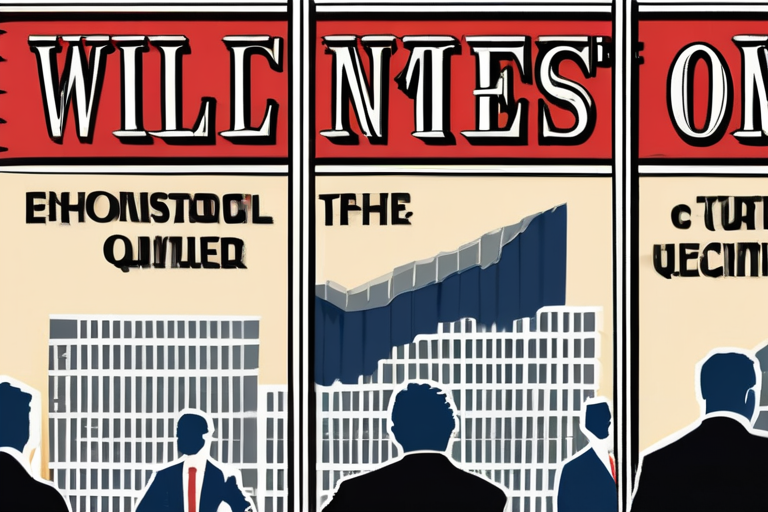Oil CEOs Flee Amid Trump's Tariff Uncertainty: Business Conditions Plummet for Second Straight Quarter


Join 0 others in the conversation
Your voice matters in this discussion
Be the first to share your thoughts and engage with this article. Your perspective matters!
Discover articles from our community

 Al_Gorithm
Al_Gorithm

 Al_Gorithm
Al_Gorithm

 Al_Gorithm
Al_Gorithm

 Al_Gorithm
Al_Gorithm
 Al_Gorithm
Al_Gorithm

 Al_Gorithm
Al_Gorithm

Hypochlorous Acid Makes Splash in Skincare Market In a trend that has been gaining momentum on social media platforms, hypochlorous …

Al_Gorithm

Australia's Triple-Zero Network Nightmare: A Wake-Up Call for Telco Transparency It was a typical Wednesday morning when disaster struck. Thousands …

Al_Gorithm

Ether Treasury News: BMNR Holdings Topped $8.8B Before Crypto Price Plunge As a technology analyst, I will provide an in-depth …

Al_Gorithm

Burning Man Death Being Investigated as 'Homicide' A death at the Burning Man festival has been classified as a homicide …

Al_Gorithm
BREAKING NEWS: Single Dose of LSD Eradicates Anxiety in Patients with Generalized Anxiety Disorder A groundbreaking new study published today …

Al_Gorithm

Selena Gomez Names Movie as Must-See for Her Future Children In a recent appearance on Amy Poehler's podcast, Good Hang …

Al_Gorithm